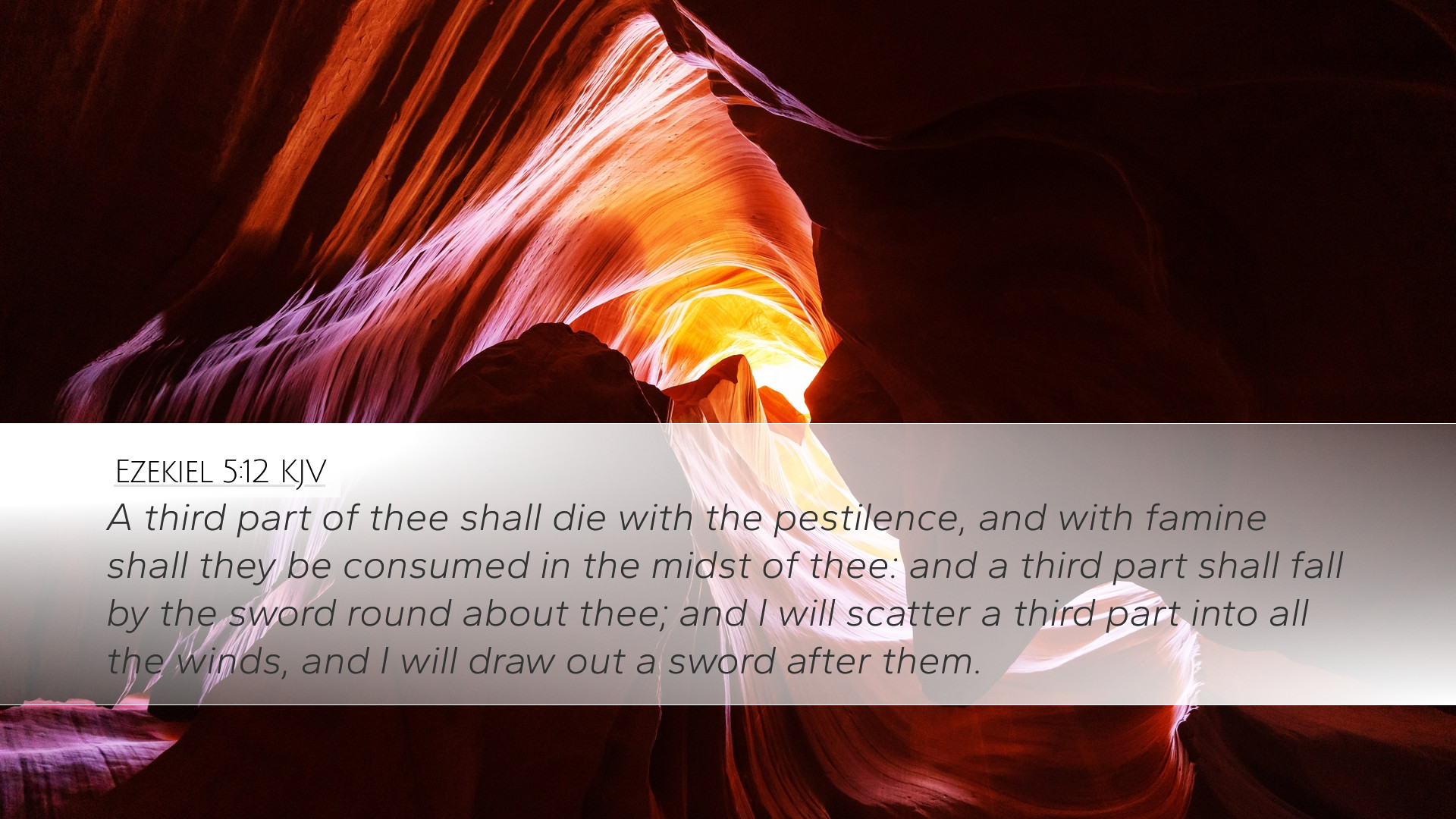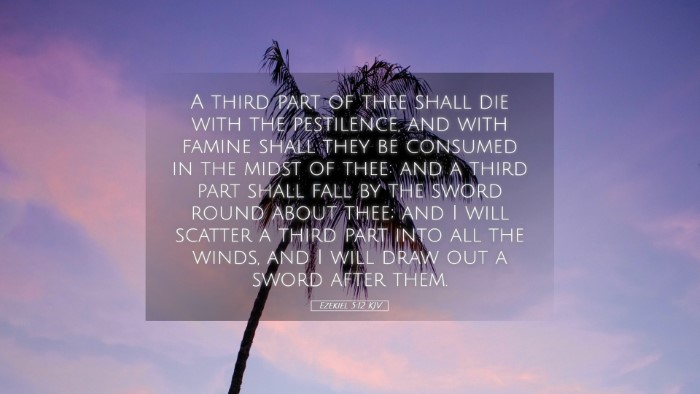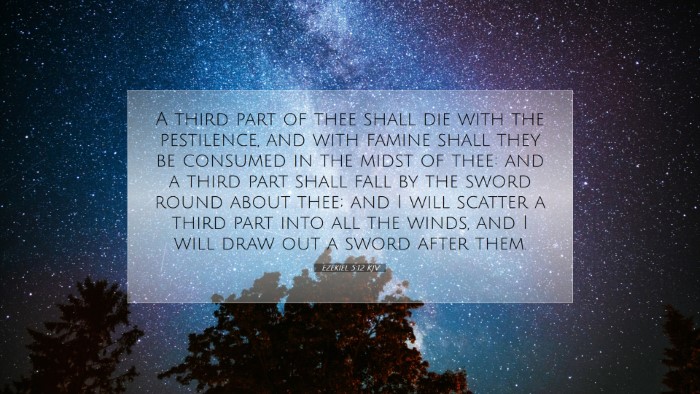Ezekiel 5:12 - A Commentary
Ezekiel 5:12 states: "A third part of thee shall die with the pestilence, and with famine shall they be consumed in the midst of thee: and a third part shall fall by the sword round about thee; and I will scatter a third part into all the winds, and I will draw out a sword after them."
This verse serves as a poignant reflection of the dire consequences that befall the nation of Israel due to its disobedience and unfaithfulness to God. The vivid imagery presented here not only portrays the fall of Jerusalem but also symbolizes broader theological themes concerning judgment, mercy, and the hope of restoration.
Contextual Background
To fully grasp the severity of Ezekiel 5:12, it is essential to understand the historical and socio-political context surrounding Ezekiel's prophetic ministry. The prophet Ezekiel was active during the Babylonian exile, a period characterized by immense turmoil and spiritual decay. His role was to warn the people of their impending judgment while simultaneously conveying God's desire for their repentance and eventual restoration.
Analysis of the Verse
Divine Judgment
Ezekiel details a proportional judgment upon the people of Jerusalem:
- Pestilence and famine: The first part of this verse forewarns of death by pestilence and famine, indicating that God's punishment will lead to suffering from both disease and hunger. This depicts the comprehensive nature of divine judgment.
- Death by the sword: The second part indicates that a third of the population will perish by violence, signifying conflict and war as instruments of God's wrath against a rebellious nation.
- Scattering into the winds: The final segment of the verse illustrates the dispersion of the people—indicating total dislocation. The "sword after them" symbolizes ongoing conflict, even as they attempt to flee judgment.
Theological Implications
The implications of this verse extend far beyond mere historical account. It speaks volumes about the nature of God and His relationship to sin:
- God's Holiness: God's holiness necessitates judgment against sin. The severity of the consequences foretold in Ezekiel demonstrates the seriousness of transgressions against the divine law.
- Justice and Grace: Despite the harshness of this prophecy, it embodies God's justice. Yet, it also serves as a precursor to His future grace and restoration, emphasizing His desire for repentance.
Commentary Insights
Matthew Henry
Matthew Henry emphasizes that the judgments against Jerusalem illustrate the consequences of sin and the enduring nature of God's covenant. He points out that the physical suffering of pestilence and famine serves as a natural manifestation of the spiritual reality of being separated from God. Henry stresses the necessity of repentance as the pathway toward divine favor.
Albert Barnes
Albert Barnes delves into the symbolism of the "third part" specified in this passage. He suggests that it reflects a deliberate and mathematical approach to divine judgment—a tangible measure meant to instill fear and shock among the people. Barnes also asserts that this escalation in judgment serves to reinforce the urgency of returning to a right relationship with God.
Adam Clarke
Adam Clarke takes a more historicized approach, interpreting the verse within the larger narrative of the Babylonian captivity. He observes the stratification of judgment as a divine strategy to show the gravity of Israel's sin. Clarke also offers insights into the implications of being scattered—emphasizing the loss of community and identity that comes from divine punishment.
Conclusion
Ezekiel 5:12 serves as a solemn reminder of the consequences of sin, beckoning believers to heed God's calls for repentance and restoration. It offers a multifaceted view of God’s dealings with humanity, oscillating between judgment and grace. For pastors, theologians, and students, this verse offers a profound reflection on the integrity of divine justice and the hope inherent in the call to return to the Lord.


